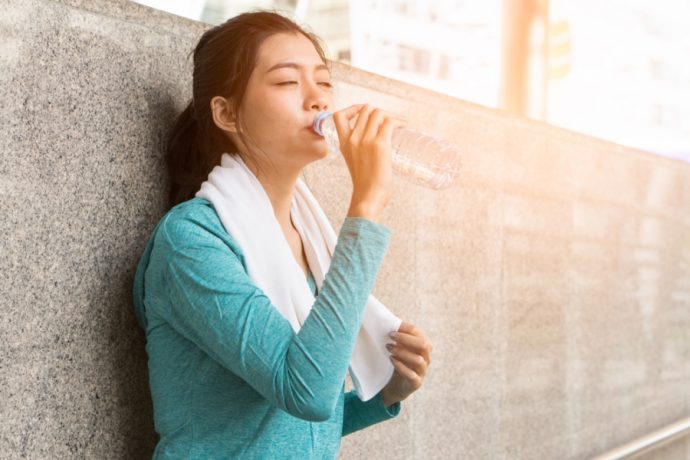Staying hydrated has a big effect on your day to day sense of wellness, and dehydration can lead to headaches and nausea, difficulty concentrating, irritability, and even dizziness, vomiting and collapse.

Today we’re taking a look at three times when staying hydrated is especially important, and when you really need to know how to rehydrate yourself fast.
Sickness
It’s easy to get dehydrated when you’re sick. Some symptoms cause or exacerbate dehydration like sweating with a fever, vomiting or diarrhea. Sometimes, it’s simply harder to find the energy to get up and fetch a drink when you’re under the weather.
Regardless, it’s important to stay hydrated. You don’t want to add the symptoms of dehydration to the symptoms of your illness, and besides, drinking fluids can help you recover: it’s how you transport vitamins and nutrients around your body, and can help to flush out toxins and germs.
Try to keep a jug or bottle of water by your sickbed where you’re resting, so you can stay topped up throughout the day. Even better, stock up on rehydration powders or isotonic sports drinks to give your electrolyte levels a boost into the bargain.
Travel
Travel, whether it’s for work or pleasure, can lead to serious dehydration. It takes you out of your usual routine, so might lead you to forget to hydrate as normal. It can also put you in actively dehydrating situations like sealed aircraft cabins with air-conditioning systems cycling and drying out the air.
Take every opportunity to hydrate on the way – especially if you can’t bring water bottles through security. Refill or buy a bottle on the other side to make sure you’re not left high and dry in the sky.
Working Out
Exercise has never been more popular, with people using lunch breaks at work to hit the gym, or dropping in on their way home. Whether it’s classes, special equipment or a free form work-out, it all works your muscles, raises your core temperature, speeds up your metabolism and leads to perspiration.
As your body tries to cool down, it uses up your internal fluid reserves, and the harder you work, the deeper you dip into this resource. Under normal circumstances, if you don’t rehydrate it can take you longer to recover, experiencing deeper muscle aches, fuzzy headedness and headaches. If you’re already dehydrated, the weather’s extremely hot or you’re under the weather it can lead to really serious symptoms.
Keep some rehydration sachets in your gym bag, and dissolve one in water after you’re done. This will top up your electrolytes and get you back to peak performance faster.

